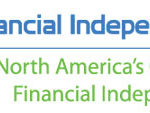By Mark Venning, ChangeRangers.com
Special to Findependence Day
In between meetings with your financial planning advisor, where do you go for ongoing news and commentary on personal financial matters? If you live in North America there is a wealth, so to speak, of media options, books and seminars to pick from, but one reliable source for news and views that has served up some of the best, curated content over the last five years is the website Findependence Hub, produced by Jonathan Chevreau (and sister site to the one you are reading here: FindependenceDay.com).
Author of the book Findependence Day, Chevreau got the idea for this title around 2008, just before the financial crisis. As Jonathan tells me, “It just came to me one day, when I was playing around with the idea of Financial Independence and the American Independence Day … Financial Independence was a bit of a mouthful, so shortened it to Findependence.”
Isn’t that the way most of today’s catchy brand names or tag lines come to life?
Uniquely, the Findependence Day book has a Canadian and US version. Jonathan describes it as, “a Wealthy Barber-ish financial fiction format,” based on a story of a couple undergoing their financial life cycle as they experience the usual modern churn in a narrative of job loss, buying a home, raising children, investing and pensions, starting a business all the while navigating stock market volatility and other life dilemmas.
True, Jonathan says, “David Chilton’s classic bestseller Wealthy Barber spawned many imitators but I tried to be a bit different with my book … it makes an attempt to incorporate real elements of traditional fiction: plot, characterization, setting, including frequent “setbacks” or conflicts between the characters that keep people reading. It turns out that the ‘setback’ or conflict structure of fiction is well suited to portraying financial planning.”
So, what is a Findependence Day? It is the day you finally achieve financial independence. We should all be so lucky one might say. Of course, the earlier on in life we develop our financial literacy and work with a well-referred qualified financial planning advisor: and with the right amount of resilience as we face life’s setbacks, then the earlier we may come closer to it. However as Chevreau says, “Findependence is different than Retirement.”
Findependence is a prerequisite for Retirement, but not vice versa
Try as we might, society can’t seem to escape from the terms “Retirement” and “Retirees.” So one of my little, pesky questions I ask of those who work in financial or retirement planning is “What would it take to get the financial planning world to make the mind-set shift to market this to a new reality in a Longevity Economy, to say as in my preferred phrase “Financing for Longevity”?
What says Jonathan who over his distinguished career has written for the Financial Post/National Post, MoneySense and Motley Fool Canada?
“It’s often been observed that financial planning would be a snap if we just knew the exact day we were going to die. Since we generally do not know that, it’s all a game of guesses and probabilities, which is why life insurance and annuity companies pay actuaries handsomely to estimate average mortality and life expectancies.
“While I agree with your longevity premise, I saw the other day that life expectancies in the US have actually stopped their gradual rise upwards in the last 3 years, with a rise in opioid deaths, suicide, gun deaths and all the rest. We should be optimistic and plan to live to 95 or beyond, so it’s prudent to finance for longevity… but there are no guarantees any of us will live to see tomorrow. As always, a balanced approach is recommended: live as if your last day will be tomorrow, but also prudently plan to be around a long time.”
Jonathan Chevreau was Editor-in-Chief of MoneySense Magazine, until May 2014 and then launched his Findependence Hub. He followed up in 2016, by co-authoring Victory Lap Retirement with Mike Drak, now in its second edition. Anniversaries are always worth celebrating! And it has been a pleasure to know Jonathan over these last five years as he has continued to present not only his solid grasp of the financial world but also his gift for writing. Asking him how he sees the future for the Hub in 2020 and beyond, he is modest, realistic and philosophical:
“Media and financial industry’s focus on Retirement isn’t about to go away any time soon, even if we succeed in recasting it as Financial Independence, Victory Lap, our Third Act or whatever term you like. Aging & Longevity is another Hub focus and this is bound to rise as the Boomers themselves start to move to assisted living, retirement homes and eventually long-term care, if only for the last year or two of their lives.
“Related to that is the whole topic of estate planning and inheritance. The Boomers may now be on the receiving end of that but the shift to passing their wealth on to their own children will increasingly become a dominant theme. Hopefully, our collective legacy will be not just passing on that wealth but in passing on a decent planet for our grandchildren: being more responsible about things like Climate Change.”
 Mark Venning works with business & non-profit leaders offering presentations, advisory and research services to help in “recoding a longevity society,” finding their fit to meet the shift in aging demographics, and make sense of the emergent longevity economy. This blog originally appeared on Mark’s blog on Dec. 17, 2019 and is republished here with his permission.
Mark Venning works with business & non-profit leaders offering presentations, advisory and research services to help in “recoding a longevity society,” finding their fit to meet the shift in aging demographics, and make sense of the emergent longevity economy. This blog originally appeared on Mark’s blog on Dec. 17, 2019 and is republished here with his permission.




















